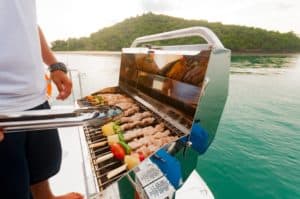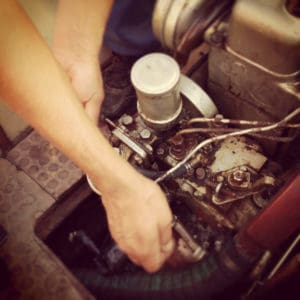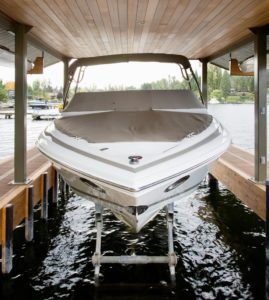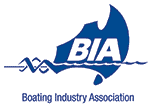No doubt, there is no better feeling than the one you feel when you’re out on the water sailing, and the sun and sea breeze are all around you. There is just nothing quite like it.
Sometimes, however, technical problems can get in the way of your fun in the sun. One of the most critical components of your vessel (and one of the most prone to damage) is your boat’s engine. Safety is critical when you’re out on the water. Therefore, you’ll want to make sure your engine is in its best shape it can be at all times.
In this article, we will discuss how long a boat engine typically lasts and how you can tell whether or not it needs maintenance or repairs.
How Long Does A Boat Engine Last?
The engine is the most vital component of a boat. Most marine engines have a shorter life expectancy than automobile engines — a marine engine, when well-maintained, can run for approximately 1,500 hours before it requires any major repairs or servicing. However, a diesel marine engine can run for about three times longer under the same condition.
Marine engines typically start to exhibit signs of minor problems after the 1000-hour mark. If these minor problems aren’t taken care of, they can quickly progress into more significant problems that can nearly impossible reach the next 500 hour milestone.
If you are unsure if your boat engine needs work, here are a few signs you should look out for.
Sign #1. Unusual Noises
Listen closely to your boat. Do you hear noises coming from the engine? Unusual noises coming from the boat’s engine can signify that there is an issue. A gravel-like sound can indicate the engine’s bearings are worn, which can cause them to fail eventually. If you hear noises coming from the tilt-motor, it is likely there’s air in the fluid. When you begin to hear any strange noises coming from the engine, it’s important to have the boat serviced as soon as possible.
Sign #2. Deep Vibrations
Minor vibrations are quite normal while sailing or riding in your boat in open water. However, deep vibrations or excessive shaking can indicate a problem with the engine. Typically, vibrations in a marine engine are a result of worn engine mounts.
The engine mounts are designed to hold the engine in place and prevent contact between the engine and other metal contacts. The motor mounts are often neglected, which can lead to the rubber becoming disconnected from the metal. If the vibrations are heavier than normal, then you’ll want to avoid taking your boat out on the water until you’ve had the engine inspected to avoid more catastrophic damage.
Sign #3. Excessive Heat
Excessive heat buildup in your boat’s engine can be another sign that there is a severe issue. The engine can begin to generate too much heat when the radiator and/or the cooling loop fails. While the radiator is designed to help regulate engine’s temperature, the cooling loop uses the water around the boat for the same purpose. These components can fail due to a broken drive belt, a failed clamp hose, or even a broken impeller. If excessive heat is being emitted from the boating equipment, you can try to locate exactly where it’s coming from. Be sure to exercise caution when you are inspecting for excess heat.
Sign #4. Engine Sputtering
Does your boat feel as if quickly losing power? When this happens, the engine might start sputtering. If you have sufficient fuel, then the problem may be fouled spark plugs or issues with the fuel filter. A bad load of fuel can also cause the engine to lose power. Condensation and water can build up in your boat’s fuel tank if you leave gas sitting in the tank for extended periods of time as well.
Sign #5. The Engine Won’t Start
When the engine fails to start or turn over, this is an obvious sign that there may be a major problem. Of course, you should first make sure the kill switch isn’t engaged. If the kill switch isn’t on, there might be an electrical issue in the engine that could be preventing it from starting, or the fuel lines can be pinched.
Sign #6. Difficulty Steering Your Boat
Are you having trouble steering your boat? The engine should respond instantly when you turn the steering wheel. Poor steering quality can be a sign of engine trouble. If the steering wheel refuses to move, you can try adding more hydraulic fluid. If the problem persists, there might be a leak in the hydraulic fuel lines.
We Offer Professional Service And Support For All Your Boating Needs
Corleone Marina at the Balmain Marina has one of the last remaining slipways in Sydney Harbour. Our marina services include the best antifouling and hull and boat maintenance and repairs. We also offer Do-It-Yourself slip way usage on the weekends. We know you just want to get out and enjoy your boat, so let us help with those routine sailing maintenance issues so you can focus on enjoying your vessel.
Contact us today to find out more about our excellent marina services in four stunning Sydney locations. We’ll take good care of you and your boat so you can relax and enjoy sailing worry-free.









